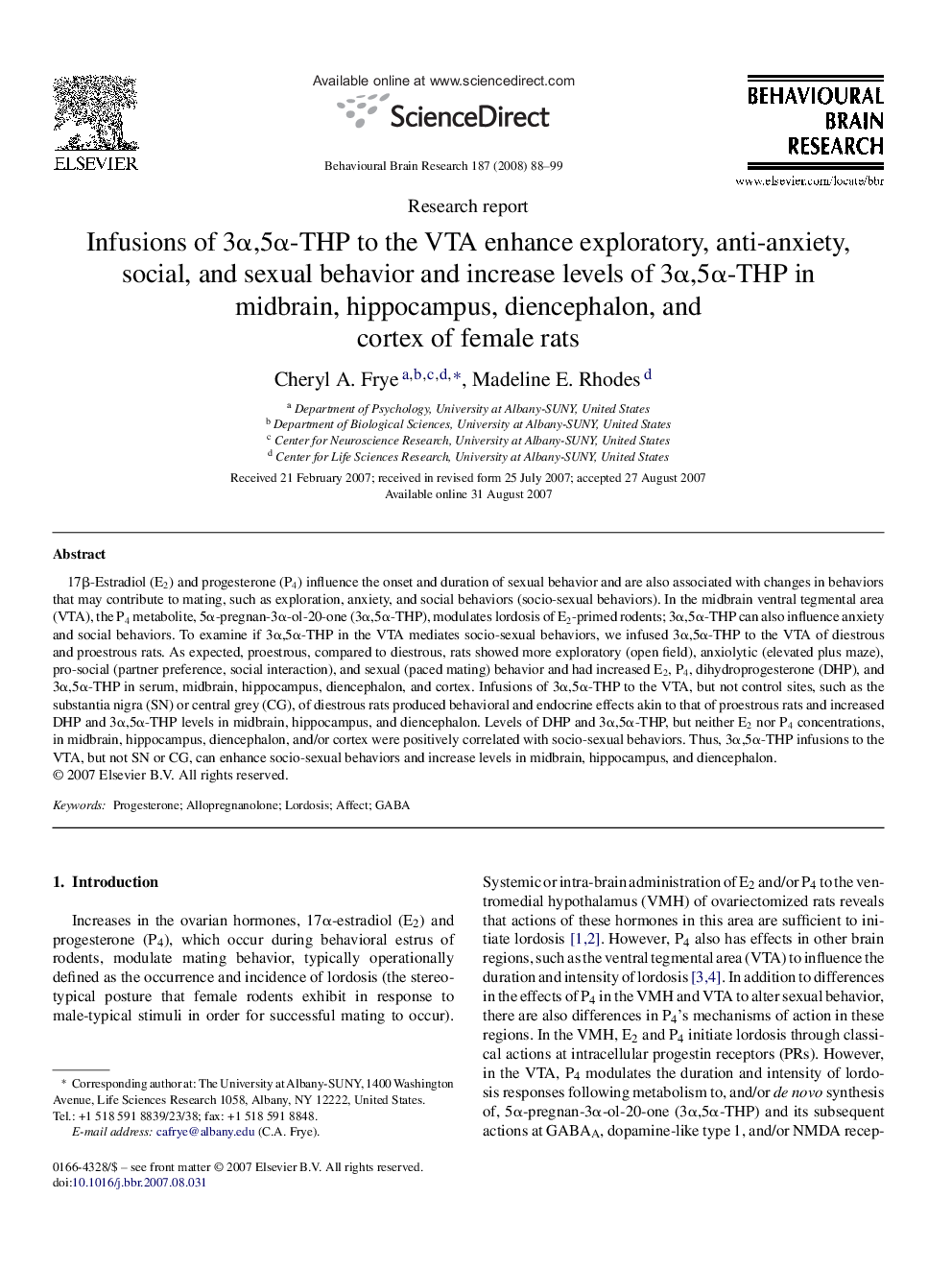| Article ID | Journal | Published Year | Pages | File Type |
|---|---|---|---|---|
| 4315351 | Behavioural Brain Research | 2008 | 12 Pages |
Abstract
17β-Estradiol (E2) and progesterone (P4) influence the onset and duration of sexual behavior and are also associated with changes in behaviors that may contribute to mating, such as exploration, anxiety, and social behaviors (socio-sexual behaviors). In the midbrain ventral tegmental area (VTA), the P4 metabolite, 5α-pregnan-3α-ol-20-one (3α,5α-THP), modulates lordosis of E2-primed rodents; 3α,5α-THP can also influence anxiety and social behaviors. To examine if 3α,5α-THP in the VTA mediates socio-sexual behaviors, we infused 3α,5α-THP to the VTA of diestrous and proestrous rats. As expected, proestrous, compared to diestrous, rats showed more exploratory (open field), anxiolytic (elevated plus maze), pro-social (partner preference, social interaction), and sexual (paced mating) behavior and had increased E2, P4, dihydroprogesterone (DHP), and 3α,5α-THP in serum, midbrain, hippocampus, diencephalon, and cortex. Infusions of 3α,5α-THP to the VTA, but not control sites, such as the substantia nigra (SN) or central grey (CG), of diestrous rats produced behavioral and endocrine effects akin to that of proestrous rats and increased DHP and 3α,5α-THP levels in midbrain, hippocampus, and diencephalon. Levels of DHP and 3α,5α-THP, but neither E2 nor P4 concentrations, in midbrain, hippocampus, diencephalon, and/or cortex were positively correlated with socio-sexual behaviors. Thus, 3α,5α-THP infusions to the VTA, but not SN or CG, can enhance socio-sexual behaviors and increase levels in midbrain, hippocampus, and diencephalon.
Related Topics
Life Sciences
Neuroscience
Behavioral Neuroscience
Authors
Cheryl A. Frye, Madeline E. Rhodes,
